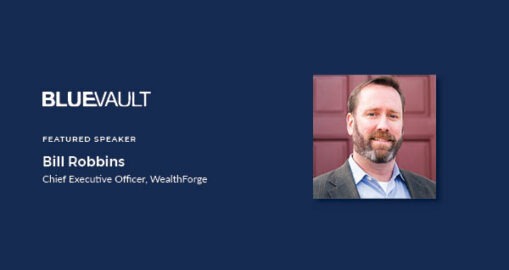 October 12, 2023
October 12, 2023
 October 12, 2023
October 12, 2023
 July 28, 2023
July 28, 2023
Top 5 Advantages of Rule 506(c)
 June 30, 2023
June 30, 2023
Can the Regulation A Exemption be used for a syndicated offering?
 June 28, 2023
June 28, 2023
Legion Capital Selects Wealthforge as Managing Broker-Dealer
 October 27, 2022
October 27, 2022
Technology Gains and a Growing Market Bring New Importance to Alts
 September 14, 2022
September 14, 2022
Bill Robbins: What Drives Altigo’s Product Road Map?
 September 13, 2022
September 13, 2022
Bill Robbins: Crossing the Chasm
 September 13, 2022
September 13, 2022
Bill Robbins: A Quantum Leap
Bill Robbins: No Easy Button in Alts
Don't miss alts news and educational events. Subscribe Now
Browse Learning Opportunities

THE BLUE VAULT MINUTE
Insights for advisors from advisors

Webinars
Asset managers, service providers and Blue Vault on alts topics

Podcasts
Breaking down alts one-on-one with asset managers and service providers

Videos
Short, impactful clips from webinars, podcasts and events



